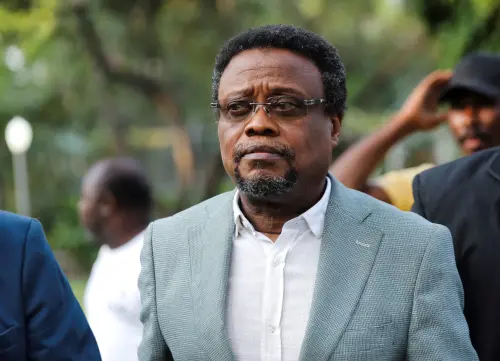On March 7, Haitian economist and former central bank chief Fritz Alphonse Jean assumed the rotating presidency of Haiti's transitional presidential council. He succeeded architect Leslie Voltaire in a smooth ceremony, contrasting the more turbulent changeover in October.
The transition ceremony took place at the Villa d'Accueil, now serving as the government headquarters due to ongoing conflicts in the capital, Port-au-Prince. Jean, in a speech, acknowledged the country's state of conflict and emphasized the need for unity to prevail. He outlined plans for a "corrective war budget" and the training of over 3,000 new police and army recruits to address personnel shortages.
Despite allocating $227 million from the 2024/25 budget to the national police, the force remains underfunded. A U.N.-supported mission involving approximately 1,000 mainly Kenyan troops has been partially deployed to assist the police. However, gang activities persist, displacing hundreds of thousands of citizens and leaving over 1 million people homeless.
In response to the U.N.'s assessment that reducing gang influence is crucial for financial support, Jean reinforced the commitment to uphold overdue elections by February 7, 2026. This move, though promoted by some, raises concerns among critics about legitimizing powerful gang figures.
Voltaire described the transition on Friday as conducted "in an atmosphere of mutual respect, friendship, solidarity, and continuity." Jean's term is expected to conclude on August 7, with businessman Laurent Saint-Cyr set to assume leadership until the 2026 deadline. Notably, three council members remain sidelined from the leadership discussions.
The transitional council, initiated in April of the previous year amid internal political conflicts, has faced criticism from various sectors, including the country's leading police unions, for its failure to address the escalating violence.
